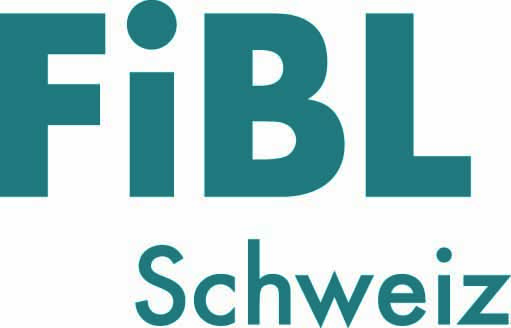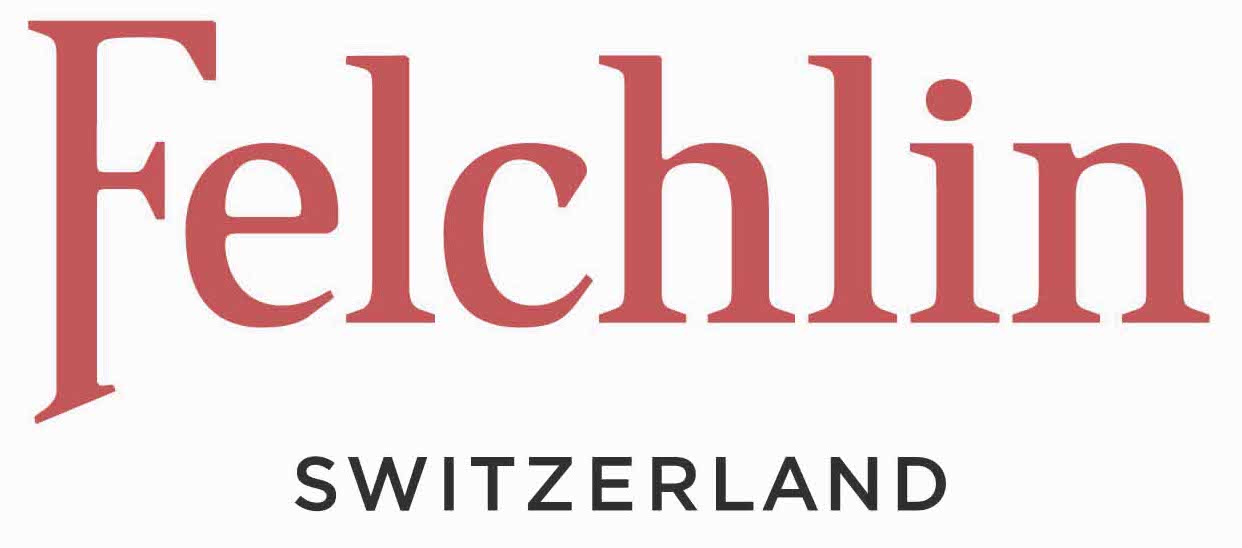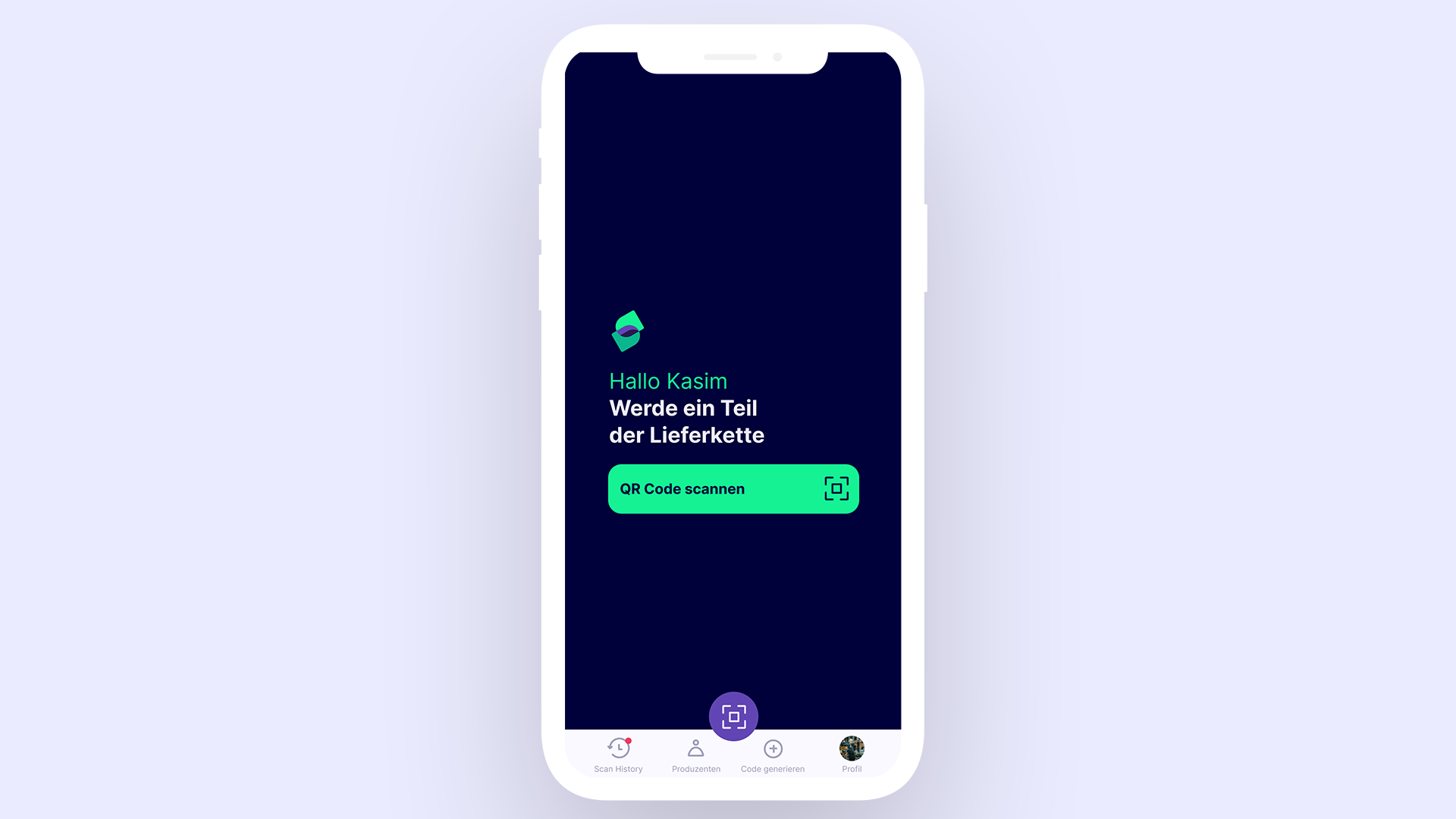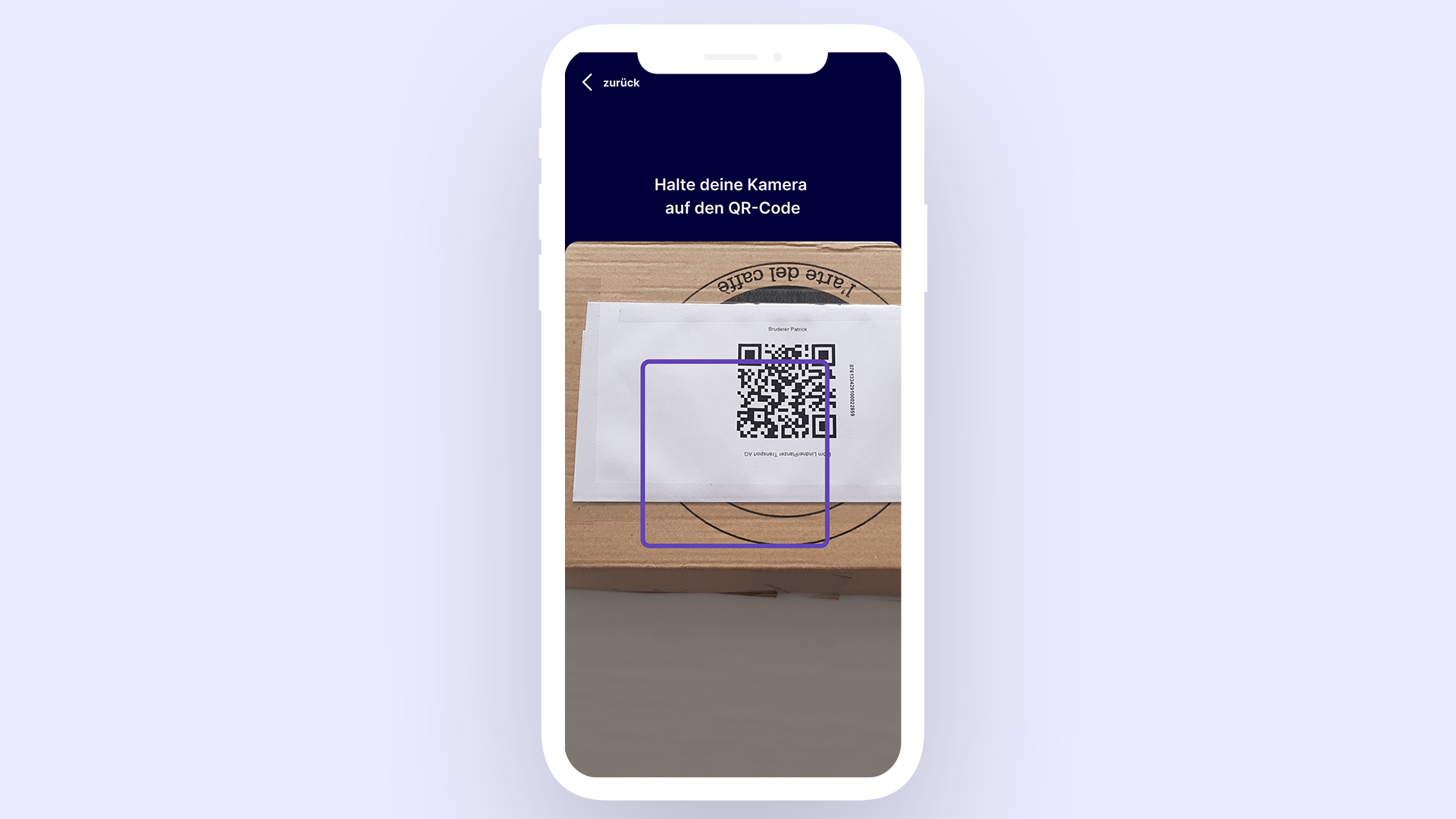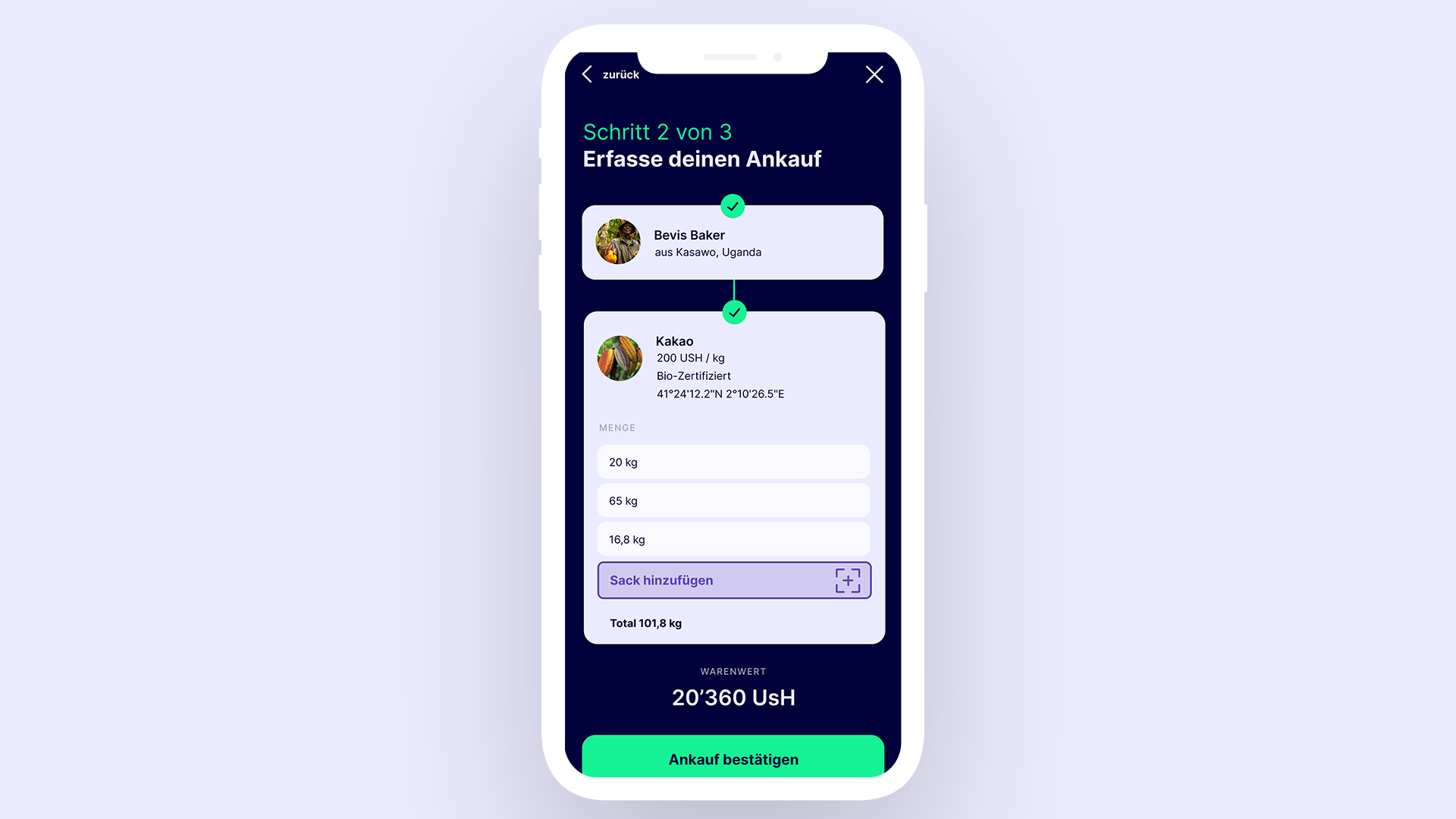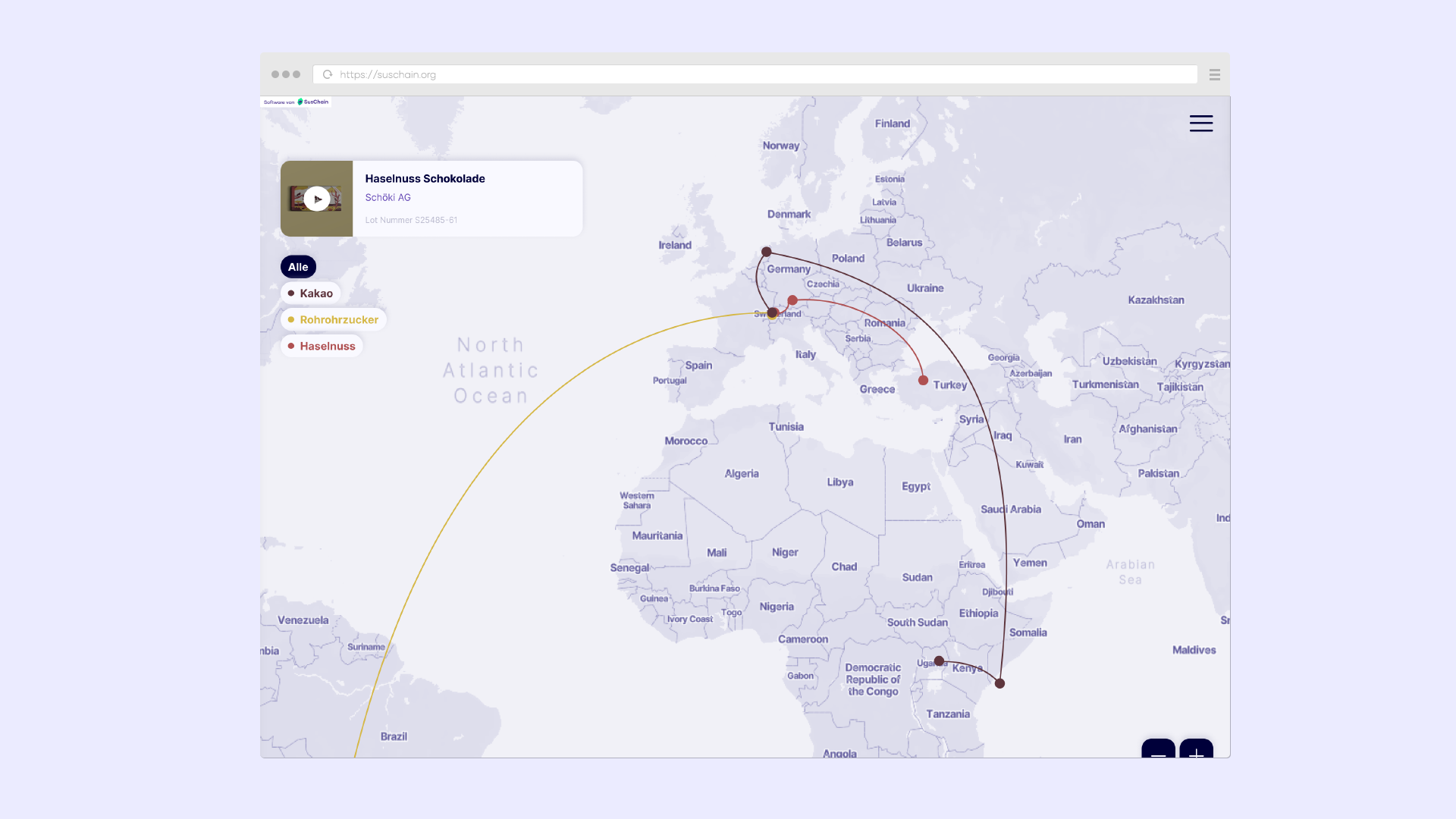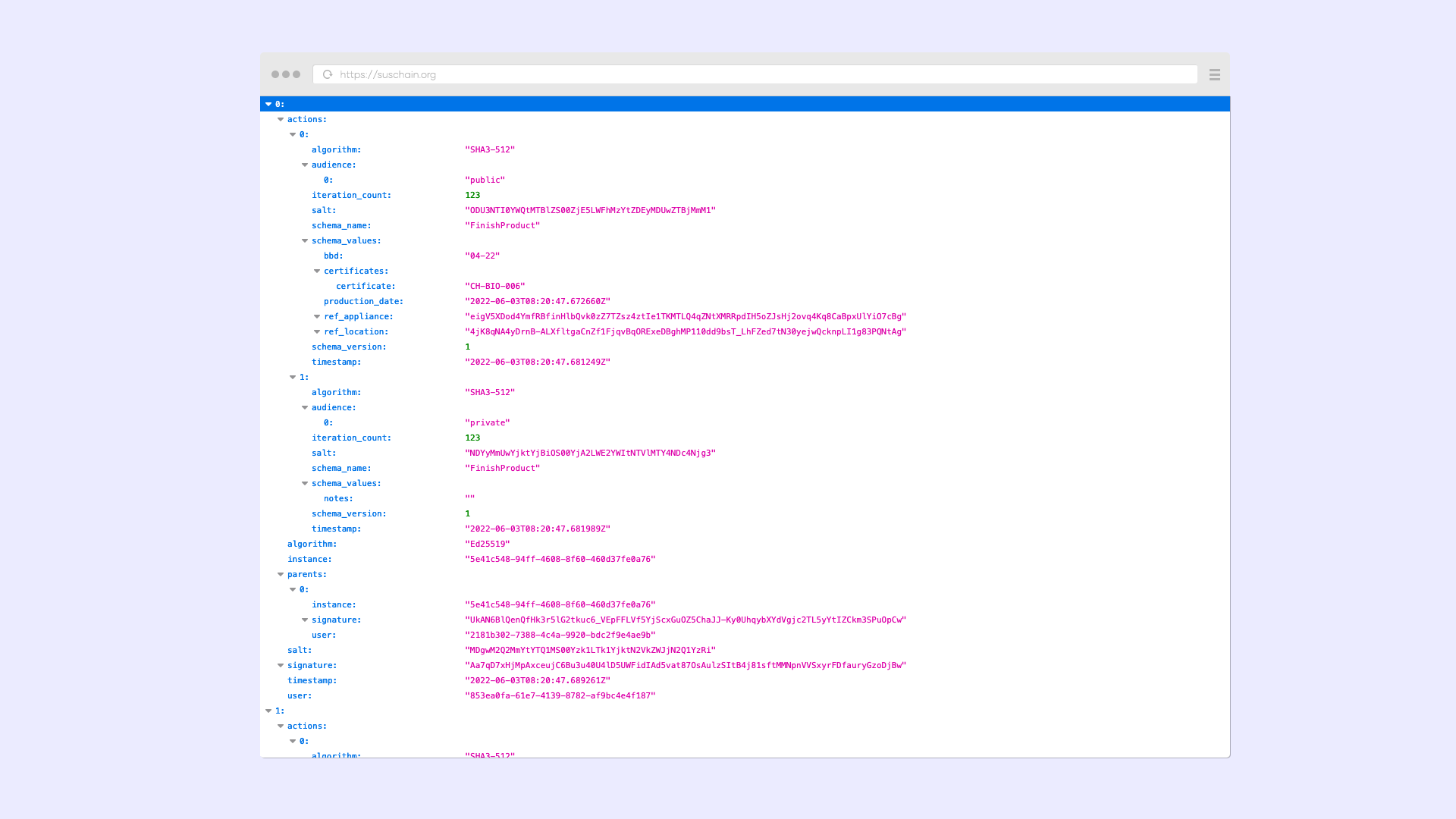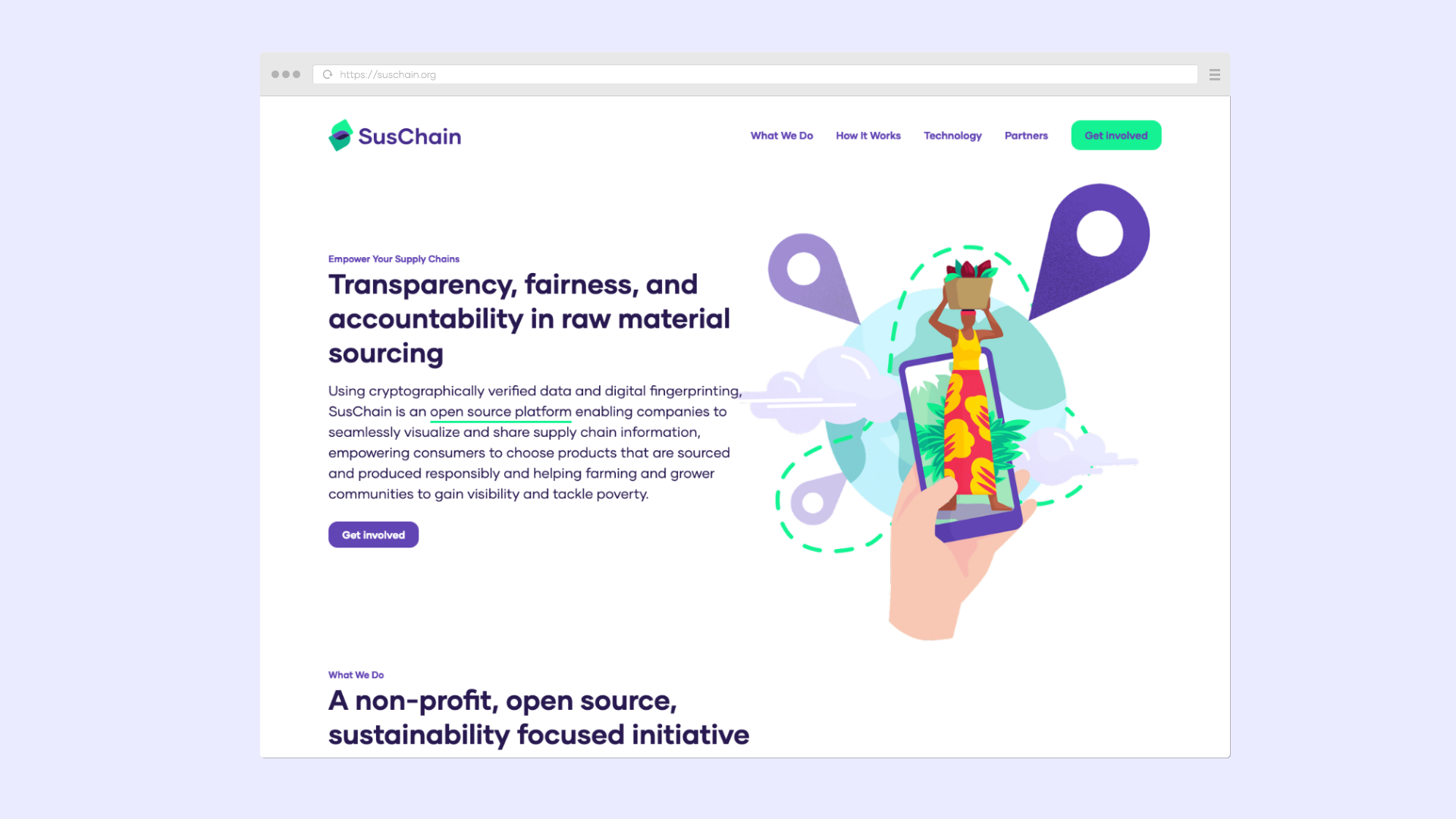Fair and sustainable chocolate through complete transparency
What the project was about
While consumers are increasingly aware of the social and ecological drawbacks of chocolate production, access to transparency along chocolate value chains remains utopian. Therefore, the purpose of this project was the development of an open-source software solution that provides complete transparency along supply chains. Through easily accessible, modern visualization of data, the software enables businesses and other stakeholders to assume responsibility for their cocoa value chain and supports responsible consumption. It therefore has the potential to counteract poverty and deforestation within the cocoa sector and beyond.
What was done
The approach of this project was the development and implementation of an open-source software solution based on modern web technologies, which provides complete transparency along the cocoa supply chain, comprehensibly visualizes the data, and is easily expandable. Data collected along the supply chains (e.g. details of farmers, their farms, crops, payments made for raw materials, transports, production processes up to the final products), and the resulting transparency enables stakeholders to identify challenges and successfully implement counteracting measures. One of the main challenges that can be identified is the low payment received by farmers. So for the first time, measures towards fairness and specifically a living income actually become easily verifiable.
What the project achieved
First, a capable partner for software development was chosen. Together, a future proof concept was developed, and a solid first version of the open-source software solution was programmed. Towards the end of the project, the software was successfully tested within a test scenario built by the project partners. The scenario was prepared as close as possible to the partners’ actual cocoa supply chain. Additionally, preparations for the implementation of a pilot testing in Ghana were started.
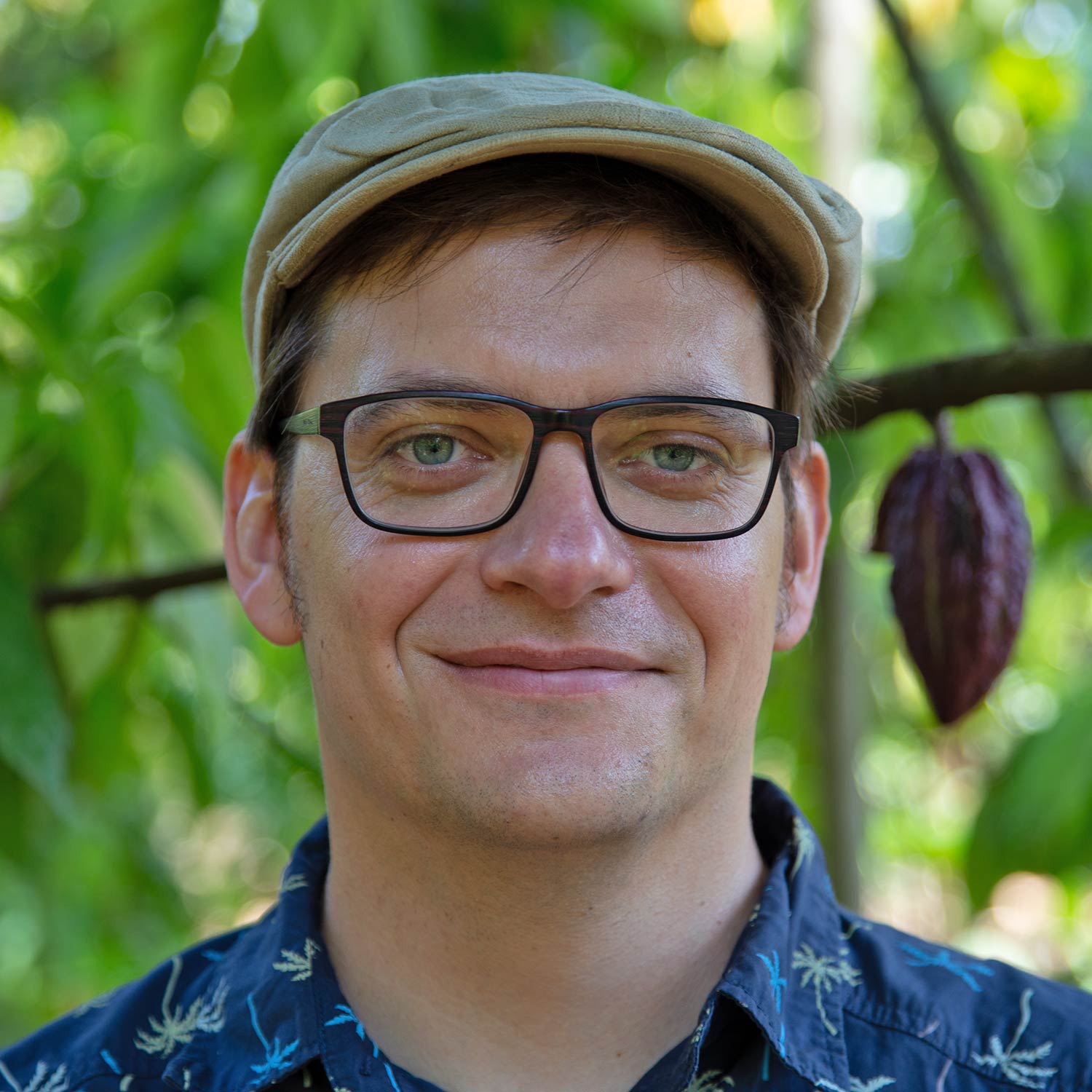
Despite multiple large-scale initiatives and political promises, the majority of cocoa farmers continue to live in poverty. With SusChain, the global community finally has a tool to make a sustainable difference within the cocoa sector and beyond.
What didn’t work or had unintended consequences
The first challenge was the detailed definition of various features of the software solution. An initial catalogue of requirements was successfully worked out. However, due to the nature and complexity of supply chains and data integrity, data immutability and verifiability, these definitions needed to be adapted regularly along the way. In the end, this previously unforeseen complexity during the development process led to a solid foundation for the next years of further development.
The second and most notable challenge was the ongoing Covid-19 pandemic, which affected all team members and led to delays. Also, the implementation of pilot testing projects in Ghana and other partner countries needed to be removed from the initial time schedule. The pilot projects will now be realized by the project partners immediately after the successful completion of the various test scenarios.
Interview with SCHÖKI about the project
Oliver von Braun-Dams, in what ways were the project’s approaches new and innovative?
Existing solutions for transparency along supply chains mainly have the following shortcomings: lock-in effect in terms of functionality, licensing, high costs and unsuitable technical concepts. Secondly, most solutions are offered as a Software as a Service solution (called SaaS), which requires the software to be used as created without any flexibility concerning functionality. Furthermore, an unanswered but important question is the permanent ownership of data. However, our software approach is offered for free under an open-source licence. This gives everybody the ability to extend the functionality and allows users to collect, visualize and analyse data along every supply chain – as simple or complex it may be. Current and future development is therefore not in the hands of profit driven IT-companies, but in the hands of the users themselves.
What has SCHÖKI learned through the project?
As this project centres on software development, the lessons learnt mainly relate to the actual programming. However, we also learnt that the catalogue of requirements needs to be exceedingly detailed to reflect the complexity of value chains accurately. Additionally, proper and complete documentation during the programming phase is key to prevent delays and higher costs in case of unplanned fluctuations within the core team.
What do you recommend to other stakeholders implementing similar projects?
We highly recommend investing enough time into a thorough concept development and catalogue of requirements. Gapless documentation and a constant critical view on the project’s milestones and goals in terms of feasibility are essential. Depending on the scope of the planned project, it can be smarter to initially focus on a smaller set of features, concentrate on the core functionality and first make this future proof, before tackling bigger questions.
What are the next steps?
Once the various test scenarios are completed successfully, the project partners will conduct pilot implementation projects within very different settings in Ghana, Uganda, and Peru – starting with Ghana. Following successful piloting, the software will be updated and finally released as an open-source solution.
How is it ensured that the project has not only short-term, but long-term effects?
To ensure the further development and sustainability of the software solution, the ‘SusChain Initiative’ was founded. Its founding members include some of the project partners as well as new stakeholders. The initiative will oversee and promote the use and further development of the software. So far, the solution has already raised a considerably amount of interest, even outside the cocoa industry. We therefore look forward to a successful future of this solution and are eager to evaluate its impact within the cocoa sector. Once the roll-out is completed, we aim to engage the research community to assess the effects especially on rural farmers and their environment. Together with the constant feedback by users, the systematic evaluation of impact can secure the long-term success of this solution.
Organisations involved

